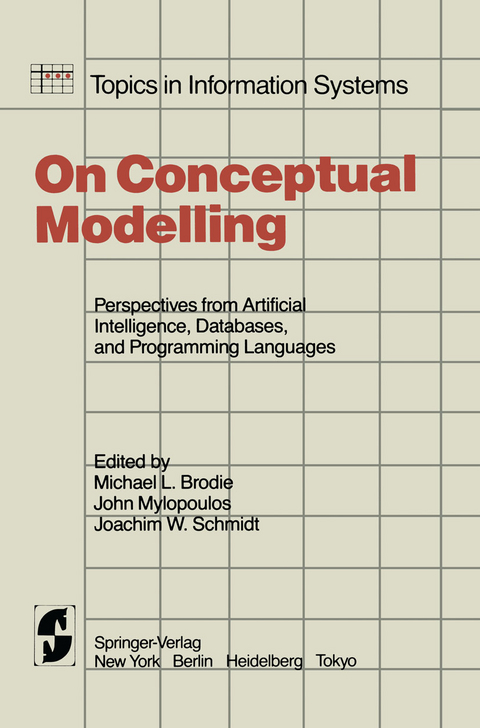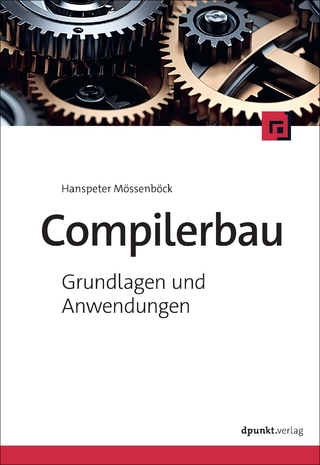
On Conceptual Modelling
Springer-Verlag New York Inc.
978-1-4612-9732-1 (ISBN)
I: Artificial Intelligence, Database, and Programming Language Overviews.- 1. An Overview of Knowledge Representation.- 2. On the Development of Data Models.- 3. The Impact of Modelling and Abstraction Concerns on Modern Programming Languages.- II: Perspectives from Artificial Intelligence.- 4. Generalization/Specialization as a Basis for Software Specification.- 5. Some Remarks on the Semantics of Representation Languages.- 6. Open Systems.- 7. The Logic of Incomplete Knowledge Bases.- 8. Towards a Logical Reconstruction of Relational Database Theory.- 9. A Formal Representation for Plans in the Programmer’s Apprentice.- III: Perspectives from Databases.- 10. On the Design and Specification of Database Transactions.- 11. A Unified Model and Methodology for Conceptual Database Design.- 12. Adding Semantic Knowledge to a Relational Database System.- IV: Perspectives from Programming Languages.- 13. The Functional Data Model and its Uses for Interaction with Databases.- 14. Types in the Programming Language Ada.- 15. Data Selection, Sharing, and Access Control in a Relational Scenario.- 16. Types, Algebras and Modelling.- V: Concluding Remarks from Three Perspectives.- 17. An Artificial Intelligence Perspective.- 18. A Database Perspective.- 19. A Programming Language Perspective.- References.- Authors and Symposium Participants.
| Reihe/Serie | Topics in Information Systems |
|---|---|
| Zusatzinfo | XII, 510 p. |
| Verlagsort | New York, NY |
| Sprache | englisch |
| Maße | 155 x 235 mm |
| Themenwelt | Mathematik / Informatik ► Informatik ► Programmiersprachen / -werkzeuge |
| Informatik ► Theorie / Studium ► Compilerbau | |
| Informatik ► Theorie / Studium ► Künstliche Intelligenz / Robotik | |
| Mathematik / Informatik ► Informatik ► Web / Internet | |
| Schlagworte | Datenbank • Konzeptionelle Modellierung • Künstliche Intelligenz • Modelling • Programmiersprache |
| ISBN-10 | 1-4612-9732-X / 146129732X |
| ISBN-13 | 978-1-4612-9732-1 / 9781461297321 |
| Zustand | Neuware |
| Haben Sie eine Frage zum Produkt? |
aus dem Bereich


